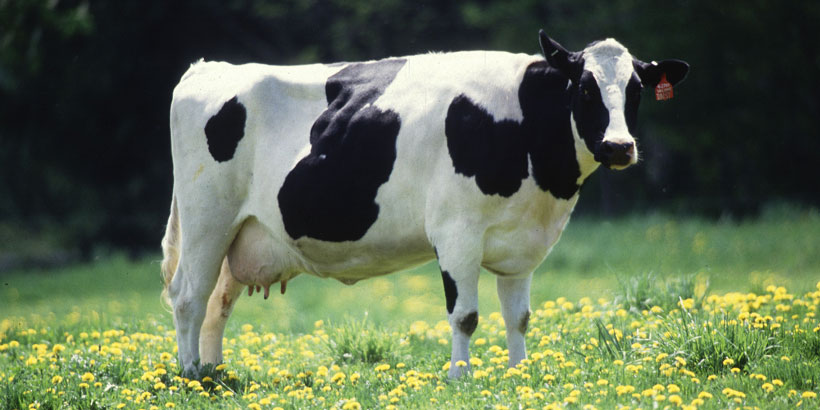
The U.S. Department of Agriculture has confirmed a case of bovine spongiform encephalopathy (mad cow disease or BSE) in an 11-year-old Alabama cow.
It’s important to note, however, that this is an “atypical” case that is not contagious (see below) and the USDA also stated,
This animal never entered slaughter channels and at no time presented a risk to the food supply, or to human health in the United States.
The USDA also said that the Alabama’s Department of Agriculture has a robust surveillance program, and this isolated incidence should not be cause for alarm. They said that this atypical form of the disease found in the Alabama cow is not spreading and it is not contagious, noting that it occurs sporadically and spontaneously in the cattle population. The USDA also stressed that this occurrence does not mean that the state’s safeguards against the disease are failing.
Mad cow disease is a fatal neurologic disease in cattle that causes degeneration of the brain and spinal cord. While the cause is not completely known, the leading theory attributes the disease to infections proteins in animals brain. These proteins eat away at the tissue causing degeneration.
The disease was discovered in what is considered to be a routine screening at the livestock market. And while officials are taking every precaution, they have made clear that this was an isolated incident.
Another reassuring aspect of this case is that there are two types of BSE —Classical and Atypical. Neither are contagious. However, Classical BSE is the form that occurred in the United Kingdom in the late 1980’s that was linked to a similar disease in people. Again, this is not the type of disease found in this Alabama cow.
As the USDA stated about the type found in Alabama,
“Atypical BSE is different, and it generally occurs in older cattle, usually 8 years of age or greater. It seems to arise rarely and spontaneously in all cattle populations.”
The primary source of infection for classical BSE is feed contaminated with the infectious prion agent, such as meat-and-bone meal containing protein derived from rendered infected cattle. Regulations from the Food and Drug Administration (FDA) have prohibited the inclusion of mammalian protein in feed for cattle and other ruminants since 1997 and have also prohibited high-risk tissue materials in all animal feed since 2009.
According to the USDA, this Alabama case “is the nation’s 5th detection of BSE. Of the four previous U.S. cases, the first was a case of classical BSE that was imported from Canada; the rest have been atypical (H- or L-type) BSE.”












